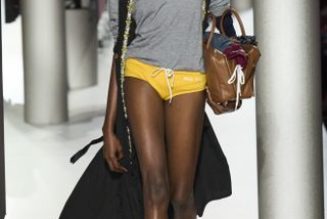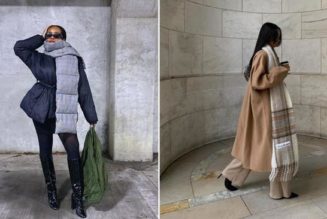
The sector has invested over $360m in AI over the past three years.
STRATEGIC imperatives such as personalised experiences, brand identity protection, and streamlined supply chain management are driving the surge in AI investments within the luxury industry.
“Consumers are more than willing to be involved with the luxury brands and in experiencing the newer technologies that they bring up,” Sourabh Nyalkalkar, practice head of Innovation Products at GlobalData, told Retail Asia.
According to a GlobalData report, these brands have boosted their AI investments by 79% to over $360m in the past three years.
Enhancing customer experience
Recommender systems, traditionally reliant on browsing behaviour, now integrate individual biomarkers for more precise customisation, noted Nyalkalkar.
This personalisation extends to computer vision technologies, enabling accurate body measurements and skin tone analysis, thereby tailoring products to diverse consumer demographics.
Luxury giants such as LVMH, Chanel, and Kering are leading these AI-driven innovations, introducing technologies such as AI-powered cosmetics recommendations and non-intrusive body measurement tools.
“They are partnering with tech companies, or even involved in partnerships in asset transactions that help them become more customer centric using AI technologies,” said Nyalkalkar.
Virtual try-ons, particularly popular in South Asia, are also empowering consumers to engage more intimately with luxury offerings.
Recently, Cartier also partnered with Snap to use AI and AR technologies, allowing users to virtually try on rings before buying.
“With generative AI models, companies are now able to collaborate with the users and create their own designs, which helps the users express their own creativity and sort of foster the brand identity and brand loyalty,” said Nyalkalkar.
Additionally, these innovations also address diversity and inclusivity concerns by accommodating varied body types and ethnicities, thus broadening market appeal and enhancing consumer satisfaction.
“As companies adopt these technologies, they are reaching out to a wider audience, because now they can address different body types, different ethnicities, and this sort of helps them to address the issues of diversity and inclusivity, which is a big win for the consumers,” said Nyalkalkar.
For example, Chanel and Louis Vuitton are partnering with tech firms to pioneer AI-driven solutions that ensure authenticity and optimise inventory across global sales channels.
Protecting brand identity
Nyalkalkar also cited the pivotal role of AI in fortifying brand resilience against counterfeit challenges and in bolstering operational efficiency.
“The second factor is the protection of brand identity,” he said. “Now, counterfeit goods have been a challenge for the luxury industry for a very long time, and they are hopeful that technologies like AI and blockchain can help them overcome these challenges in the coming times.”
Operational efficiency
AI tools are also expected to streamline global expansion efforts by improving inventory management and enhancing predictability across sales channels.
“It is expected that AI tools help them become more predictable in managing supply chains going forward,” the expert said.
Looking ahead, Nyalkalkar predicts continued advancements in AI technologies will drive hyper-personalisation in luxury goods.









